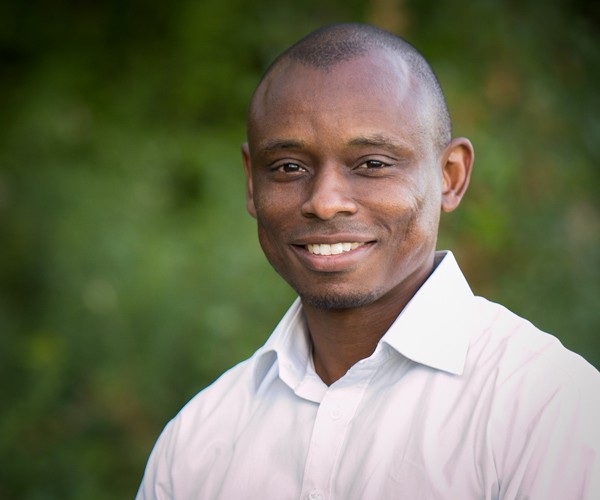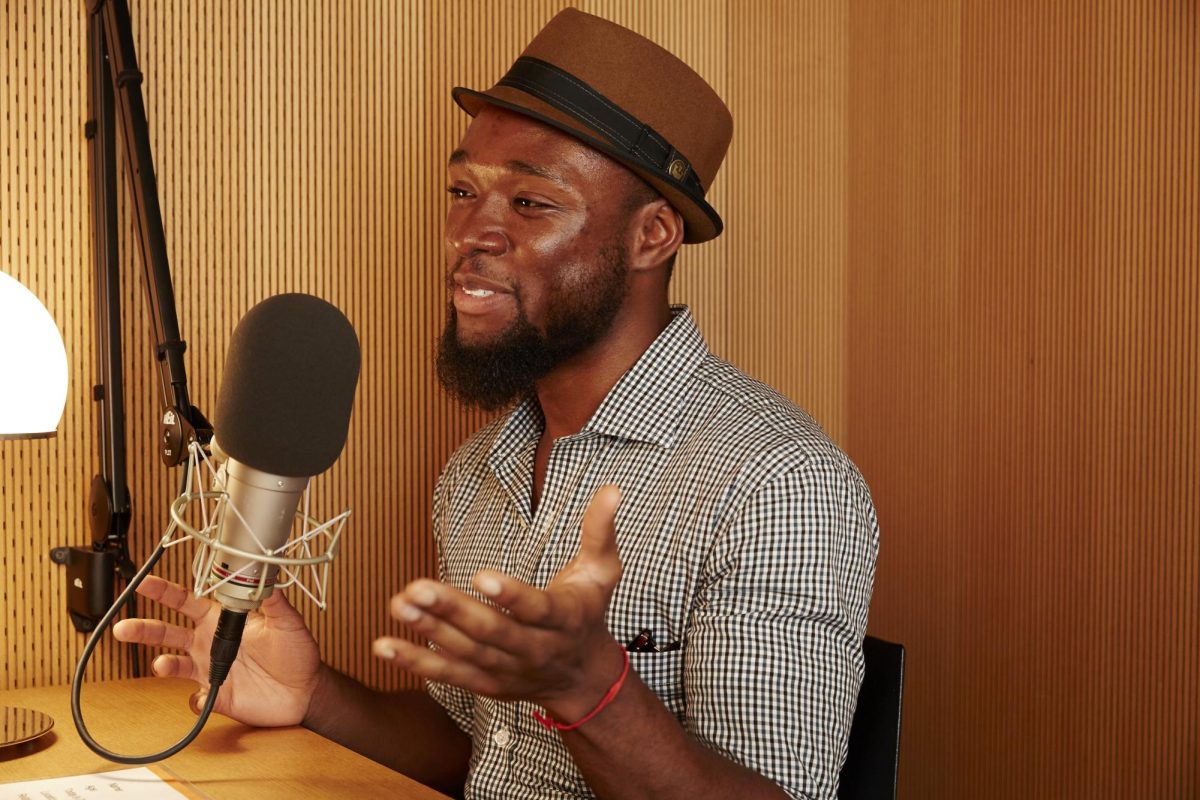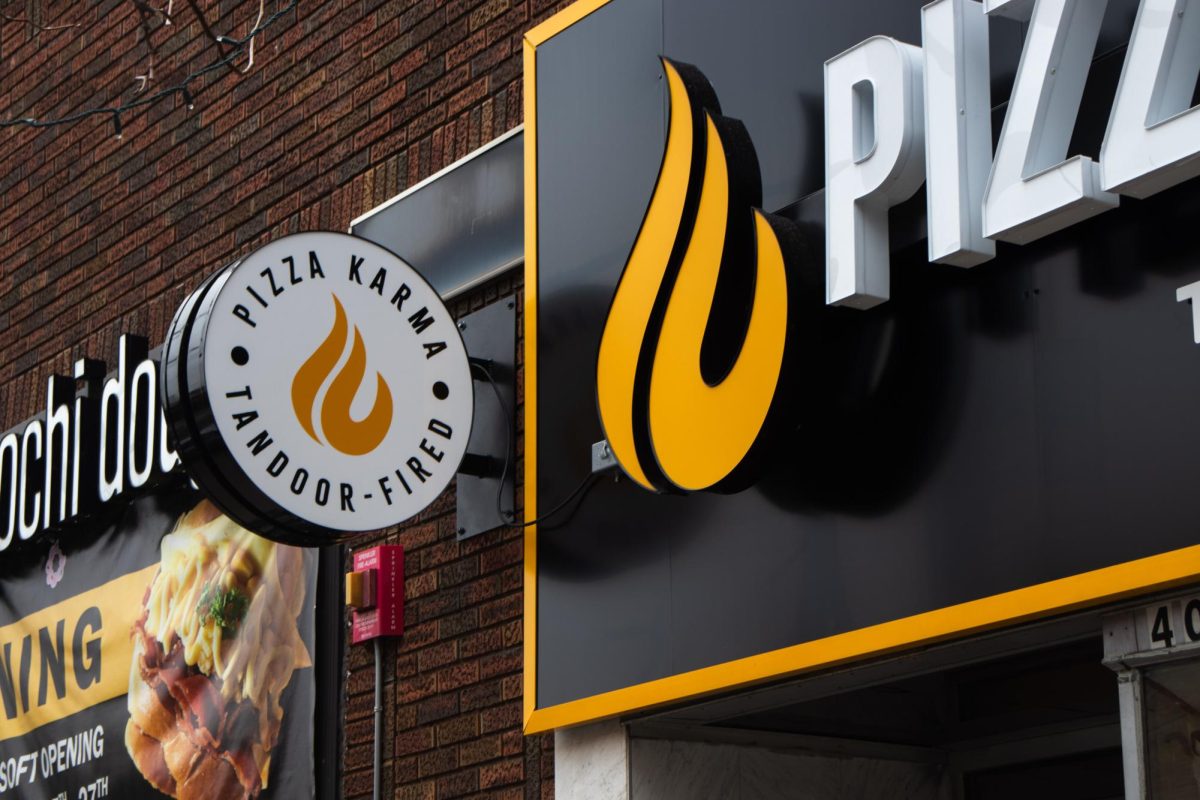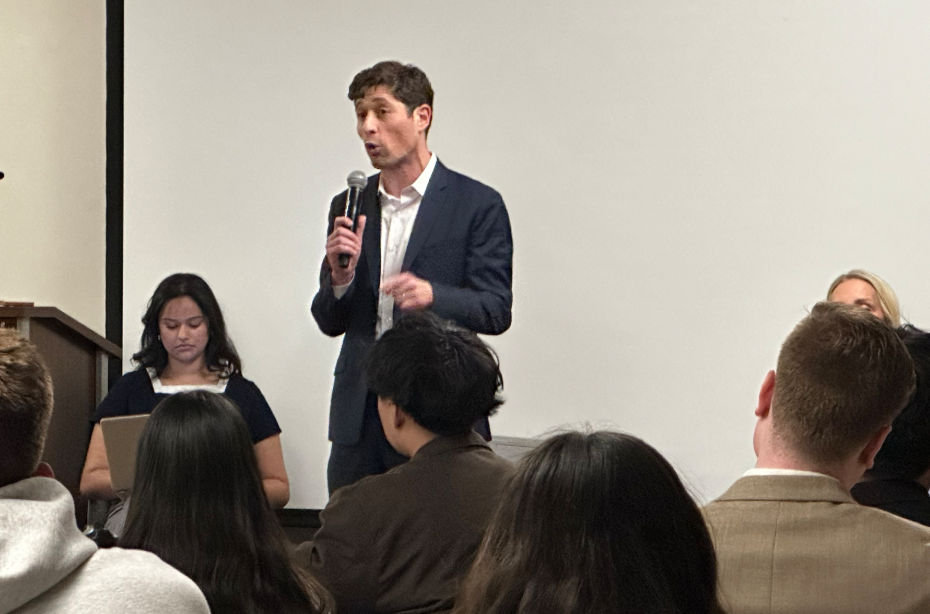Days before the Aug. 11 DFL primary election, the Minnesota Daily spoke with Antone Melton-Meaux, Rep. Ilhan Omar’s strongest contender in the primary race for Minnesota’s Fifth Congressional District. Melton-Meaux laid out his priorities for office, how he hopes to serve college students and addressed criticisms leveled against him in recent weeks.
Here are some of the highlights from that conversation:
What are some of your immediate priorities? The top two or three issues that you hope to begin addressing should you take office?
For me, one of the first priorities is making sure we address some of the systemic inequities that we have in our district. And there’s many, unfortunately, but one of the ones that, for me, is most important to address is education. Addressing the achievement gap — at least from the federal level, understanding this is a multi-layer governmental challenge and opportunity — that’s important to me.
Second issue that is critically important is health care and making sure that we have universal health care so that we can be sure that 30 million people that are not on the roster have access to health care. So I would support Medicare for All, if it came across my desk, in a heartbeat. That really addresses the access issue. But we can do better in terms of addressing quality and costs.
I have a different proposal that is now being talked about quite a bit. It’s called Primary Care for All. That really acknowledges the reality that we have a very unhealthy country as a whole, especially compared to our peers, and that is in large part due because we don’t have enough preventive care services. Primary Care for All addresses that issue.
The last topic for me that’s incredibly important is climate. Clearly, we still have an existential threat right now and need to address our carbon footprint. First at the global level, getting back on the Paris Climate Accords. Then the second level, I do support the Green New Deal and my proposal is to move forward with a carbon tax on large corporations and use those dollars to infuse into a clean energy economy based upon revamping and rebuilding our transportation infrastructure. That’s great for union jobs, it’s great for our economy, it also helps to keep us competitive from an innovation and technology perspective on the global market.
How have you been engaging college students? And how would you hope to continue engaging young voters if you take office?
Young voters are critical to those issues I mentioned before, clearly they’re affected by it from an education perspective, certainly from a healthcare perspective, and obviously from the environment. Young people have been leading the way, especially on the environment, bringing energy and new ideas and accountability, which is incredibly important.
Our staff is made up of quite a few young folks who care about politics in the 5th Congressional District. Many of our volunteers are young, either high school or college students, that are invested in the district.
And one of the things that we’ve talked about is having advisory councils. And what I mean by that is after we get elected … we’ll convene residents, civic leaders and local elected officials to develop advisory councils on key areas to the district like education, housing, health care, climate. Young adults will have a place in that conversation on those on those advisory councils. That’s a priority for me.
At a time when progressives have really touted grassroots support, you face some pushback for the amount of funding you’ve received, including the Federal Election Commission complaint from the DFL. How can constituents trust that you’ll be representative of them and not representative of Ilhan Omar’s critics or these PACS?
I’m really proud of the grassroots support we have from the district itself, we now have over 1,700 individual contributors from this district.
It’s also important to note that we’ve been successful every single quarter since we started in out-raising the Congresswoman from this district. So our support really springs from a kernel of really strong support of the people here.
I would also say that in terms of outside money, it’s important to note that the Congresswoman has still raised more money than we have outside of the state. Nine out of 10 of her donors are from outside the state, California being the largest state she gets donations from. And just within the last three weeks, she’s taken $65,000 from PACs, including the sugar industry. So, you know, there’s a bit of hypocrisy when it comes to the critique against us by the Congresswoman. But again, I can’t be more proud of the support we’ve gotten from this district.
[Editor’s note: Since the start of the campaign, Omar has raised over $3.2 million dollars in out-of-state individual contributions, according to OpenSecrets. Melton-Meaux has raised $2.8 million dollars in out-of-state individual contributions.]
I’ll also say to your question about the FEC complaint: First, it’s false.
We have done everything according to the law, the individual companies that decided to incorporate that way did it on their own accord. And it speaks to what’s happened in our politics where the Democratic Congressional Campaign Committee has issued a letter essentially blacklisting vendors that will work for people like me — people that are primarying an incumbent really undermining the democratic process and trying to circumvent the will of the people. It’s forced, unfortunately, these vendors to try to have a need to protect themselves. They’ve done so legally and the claims against us are false.
[Editor’s note: The DFL complaint alleges Melton-Meaux’s campaign violated the Federal Election Campaign Act of 1971 by intentionally obscuring the identities of three companies who provided services to the campaign, which was first reported by MinnPost. The Campaign Legal Center, a nonpartisan nonprofit focused on campaign finance law, has also lodged a complaint against the campaign with the FEC.]
It’s also interesting to note that this attempt by the DFL clearly was an act of desperation, trying to resurrect Congresswoman Omar’s campaign, which is, frankly, falling apart. That’s what this is.
…
And even today, she has now paid her husband $1.6 million in his firm through this campaign cycle. And it’s a blatant conflict of interest. She’s ingratiating herself by way of her campaign finances. And that is something that the people of this district need to know. And I find it to be unacceptable that she has done this in broad daylight and not taken accountability for it.
This is a pretty divided race with a few strong DFL contenders. How are you going to be able to unite supporters after the primary?
Well, that’s what I specialize in, is uniting people. I’ve done that my whole life as a mediator, lawyer, civic leader.
We’re all still Democrats here, at least people running for this nomination and supporters. I’m a progressive democrat, [Omar] has said she is as well as their supporters. They support progressive values and that’s not going to change.
I will graciously and thoughtfully reach out to Congresswoman Omar[‘s] supporters, give them confidence that I will be on the hill pushing for strong progressive values. Then we’re just going to show up every day and work and demonstrate — by our actions — the things that we said in our campaign and on our platform.
You said you voted for Congresswoman Omar and then you decided to run because you weren’t happy with how the district was being represented. How do you hope to stay connected to the district while in Washington D.C.?
[Alongside advisory councils], The other component that’s really important is, you know, constituent services are incredibly important. I worked on the hill in the late ‘90s under Donna Brazile and Congresswoman Eleanor Holmes Norton when I was a Congressional Black Caucus fellow.
One thing Donna talked about consistently is the importance of constituent services because that is the way you interact with your residents on a regular basis. Most of them don’t get to D.C. to see you in your office or sit on the House floor to see you talk about a bill. But they do see you and your staff when they have a question about access to government resources or question about filling out an application for Medicaid.
In addition to that, I will be here, whenever I’m not doing work from Capitol Hill. I’m not moving to D.C. This is my home. So I will be right back here meeting with my advisory councils and my staff. And we’re going to have 12 town hall meetings every year. I’ve already promised to do that. What I mean by a town hall meeting, it’s not a panel discussion with experts, it’s not my staff holding the session. It will be me as the representative of this district in a public space with plenty of notice. Everyone is welcome to attend, including press, and I will stand before our residents and tell them what I’m doing.
There have been tons of conversations about policing, and there’s been civil unrest. What would be your role as a Congressperson in those continued discussions about policing, public safety, civil unrest and how the country responds to them?
It’s an important conversation. This is a consequence of a very tragic, heartbreaking act of violence by former officer Chauvin on Mr. George Floyd. For me as a Black man, it was reminiscent of my experiences with the police in terms of having issues — certainly not to the extent that it cost my life — but it really did affirm that we have so much work to do in this space.
At the federal level, there are things that we can do to reduce police violence. We can first demilitarize the police. They don’t need grenade launchers, they don’t need bayonets, they don’t need heavily armored vehicles. That’s all government surplus that goes to local police forces, we can stop that. We can also have legislation that creates a single unified excessive force standard in this country. Our rights should be the same if I’m in Minnesota, New York or Texas. We can also end qualified immunity. That is a judge-created standard that makes it almost impossible for a civilian to bring a successful misconduct case against police officers. And then lastly, we can end police sexual violence. That’s the second most common complaint against police officers.
The other thing we can do at the congressional level is have more oversight of local police functions. Almost akin to the Voting Rights Act where you can pull data and other information to identify and root out patterns of discrimination and bias. That’s the federal level. The rest of the stuff really comes at the local level. I know there’s been conversations with the City Charter [in Minneapolis], but what this really is calling for holistically is a transformation of how we see public safety. What we have done, very tragically, is policed and criminalize[d] homelessness. We have policed and criminalized mental health crises. And we have to stop that. Our prison population, private prisons in particular, are the number one provider of mental health in our country by far. And that really is an indictment on what we’ve allowed to happen in this space of mental illness.
So we do need a police function. I’ve talked to residents all over this district, including in North Minneapolis, and East African business owners. People need to feel safe in their homes, in their businesses and their communities. We also have to be sure that the police functions much more narrowly and there’s a clarity about how they function.
So we take resources that should not be there, like for mental health, to end homelessness and invest more in our community schools with wraparound services, that those are schools, public schools, they have strong education components, but they also have extended services that are honest about the needs of the community, like before care, after-school care, health services, supportive housing, if necessary; and also partly more intentionally with parents for career counseling and other types of career development. That’s great for schools, it’s great for students, it’s great for families. These are the kind of creative, holistic approaches that we have to have.
Is there anything else you’d like to add?
The issue of college affordability and student loan debt is important to me. And it’s something that I’ll be looking at on the hill. I am a proponent of creating at least two years of free college for technical or community schools. And then students can use those two year, if they choose not to go there, to go to four year institutions — public schools, or historically Black colleges and universities, because it’s really important to make sure we give our students a better start with lessening the affordability gap for many of them. I’m also in favor of doing more to expand access to Pell Grants. Right now, many working middle-class families don’t have access to Pell Grants, and increasing the allotment for those. I also support Joe Biden’s plan for student loan forgiveness for public schools and for historically Black colleges and universities.
This interview has been edited for clarity and length.













